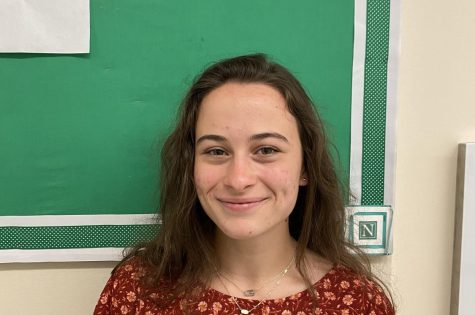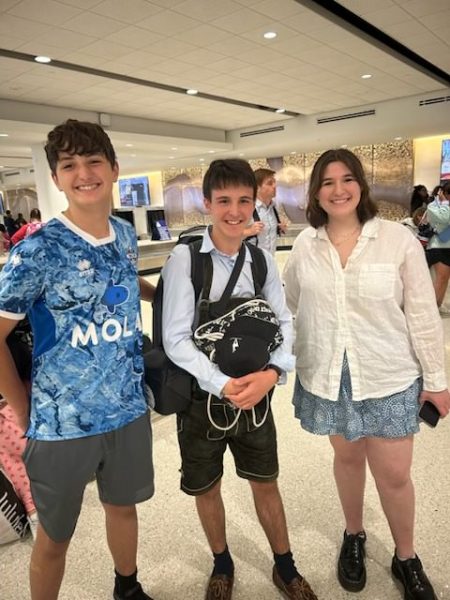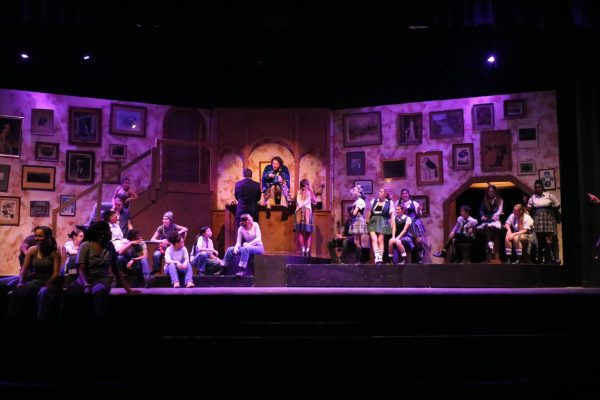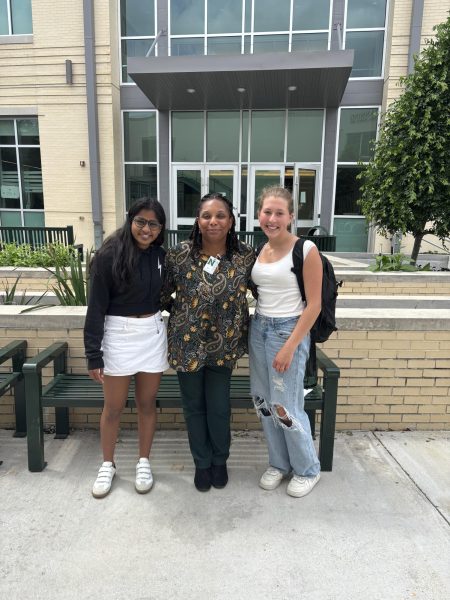The wrong way to interview English teachers
Applying the scientific method to the English Department’s music taste
Experiment date: February 4 2020 Subject: English teacher music taste Success: Subjective
Abstract:
I went to a Tool concert last weekend. Really cool, by the way. My dad and I absolutely love the band and they killed it on stage. It was awesome. I had the songs in my head and a grin on my face all weekend.
But I rolled in to school on Monday morning and it was like nothing had even happened. No one else in the icebox even knew who Tool was. Who was I to talk to?
I brought it up at the Navigator meeting, cracking a joke about how I went to Tool and no one even knew who it was. Then, Dr. Bates glanced at me with recognition in her eyes.
She knew who it was. The funny thing is, it had happened before; both Dr. Bates and Ms. Nicolson had commented on my taste in music when I showed up in an Incubus hoodie after that concert, too. And, still, even in that case, none of my peers shared their interest. I seemed to have more music tastes in common with the English department than my own peers!
So I conducted an experiment.
I wanted to see if there was a trend in musical interest within the English department and maybe find something interesting. The point of my project wasn’t really set in stone, but I mean sometimes my essays are like that too, right? It’ll be fine. What could happen? (Do you like my use of foreshadowing, teachers?)
Since my experiment victimized the Upper School English Department, I’m now writing an article that has piqued interest to all the English teachers – no pressure. I just hope the editors get to my grammar mistakes before the teachers do.
I started with Dr. Bates, who, as predicted, gave me great, concrete information and some insight for the rest of my journey. Then I popped in Mrs. Nicolson’s room to compare her answers with what I had vaguely known. From there, I had no idea what to expect. I hadn’t even met some of these teachers before.
This is how my experiment went down: on Tuesday morning, I scurried around Lemle, peered in through open doorways, and tentatively mumbled background for my little project before I bluntly asked each of them, “Hey, uh, what kind of music do you listen to?” It’s as chaotic as it sounds.
It was a funny process. Not only were they thrown off, but they coped by starting a chain reaction. At this point, I’ve personally come to the conclusion it’s an adult fight-or-flight response – we all know the ‘go ask your dad’, ‘go ask your mom’ cliché. The English department followed my theory.
When I went to Mr. Causey, he dodged around the question and recommended I get information from Mr. Henderson instead. I pestered him for a little longer, but when I was unable to pry out much else, I moved next door to Mr. Uskali, the only other classroom open at 7:37am. After I learned about his music tastes, he remarked I would enjoy Causey’s insight. Next was Mr. Henderson, and after he quickly provided minimal but effective answers, he snatched Dr. Bates and Mrs. Goyette from the hallway to take over the conversation. Somehow, they all connected each other. At least we know they have great teamwork skills.
impressions
Some of these quick and blunt interviews were the first conversations I’ve ever had with these teachers. To me, relying on just our first conversation, Mr. Uskali gave off the impression as the author of a bestselling American novel. His face looked like one you’d see on the back of a book where it talks about the author, and his voice sounded smart and relaxed. And Mr. Henderson, who knew my name before I had even mumbled an introduction, definitely had a sense of strong and natural presence in the room. If I might smoothly incorporate my English notes here, he spoke like an archetypal mentor. He seemed like he knew everything and chose only to tell people piece by piece. And I definitely shared a connection with Mrs. Goyette when she declared it’s impossible to choose favorites. No matter where on the spectrum her interests were, we both felt the same about the concept. But a continuous trend that kept reappearing was Mr. Causey.
“Mystery-man”
Plenty of the English Department commented about Mr. Causey: he would be hard to crack, they said, he’ll have interesting information, they said, he loves K-pop and Taylor Swift, Mr. Henderson said. Dr. Bates would add to that and say Mr. Causey also loves the Backstreet Boys.
It was true Mr. Causey was cloaked in mystery and a looming sense of suspense. Even Mrs. Vogt would later agree ‘he loves being the mystery man’.
At this point in my incoherent experiment and article, majority of the readers remaining are probably primarily members of the English Department. So, I want to recognize and thank the Upper School English teachers for sticking with me and allowing this little pointless project to be undertaken using your responses.
Conclusion
As far as the ‘data’ goes, it wasn’t really clear. I forgot to consider how vague and up-to-interpretation my responses would be, not only because they’re all English majors but also because music can be so broad. What one calls “real jazz” or “real rock” is kind of subjective and depends on your viewpoint, so I can’t even clearly present my ‘data’. And I wasn’t really sure what I was looking for in the first place. It was interesting nonetheless. Although I predicted a trend of mellow music they could read to or music with powerful or deep lyrics, I was sincerely surprised that some of them broke those barriers and extended to different ends of the spectrum. It was pretty cool to realize how different they all were.
The only trend I could cut out of the data was that English teachers – surprise surprise – tend to want to be vague or ‘open for interpretation’. You know, the same way they expect you to realize a bland sentence in a book is actually many symbolic metaphors the author definitely thought about when he wrote it? Maybe it’s the nature of all English teachers to be melodramatic, maybe it’s their go-to power move, or maybe I just scared them with my blunt personal questions – in an experiment, it’s important to consider external factors. But does that make it our job, as observers, to interpret the vague data they give us? Or should we just read what we see on the surface, and not try to pry for more?
I should have known there would be no clean-cut answers. So maybe next time, I’ll stick with the math teachers.

Isabelle (Class of 2023) is a four-year veteran of the Navigator crew. She loves to write opinion pieces unprompted and also commonly sponsors the Varsity...








